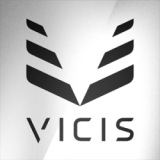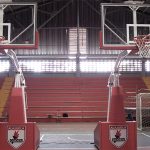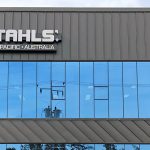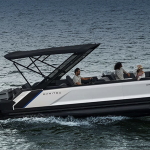 In its bid to push research into concussion mitigation, the NFL has helped sustain a new helmet company that aspires to compete against incumbents Riddell, Schutt, Xenith and Rawlings.
In its bid to push research into concussion mitigation, the NFL has helped sustain a new helmet company that aspires to compete against incumbents Riddell, Schutt, Xenith and Rawlings.
The venture is among seven awarded such grants by Head Health Challenge II (HHC II), a collaboration between the NFL, GE and Under Armour that plans to invest up to $8.5 million in innovations and materials that can protect the brain from traumatic injury. Vicis was the only winner that intends to launch a helmet. The rest plan to use the grant to refine materials or technology that could be used with helmets to mitigate concussions, used on the field to quickly diagnose concussions or used in synthetic turf to reduce the risk of concussions. One winner is developing a training system to teach players how to tackle properly to avoid head injury.
The grants are part of the NFL’s efforts to distance itself from any one helmet manufacturer in the wake of a massive lawsuit by former NFL players who claim they suffered traumatic brain injury from their years of playing in the league. In 2013, the NFL revoked Riddell’s rights as the official helmet of the league and allowed players to wear any helmet that meets standards set by the National Operating Committee on Standards for Athletic Equipment (NOCSAE). Riddell paid to retain the exclusive rights to appear on the front of NFL players helmets, but ESPN reports that about two thirds of NFL players now use helmets from competing brands such as Schutt, Xenith and Rawlings.
Vicis, which is Latin for “change” and pronounced like “crisis,” hopes to add to that list. It plans to use its $500,000 grant to accelerate product development so it can launch its helmet as early as next year. Its founders include Per Reinhall, PhD, Chairman of Mechanical Engineering at UW and Samuel Browd, MD, PhD, Pediatric Neurosurgeon and Medical Director of the Sports Concussion Program at Seattle Children’s Hospital.
“The next innovation in football helmet technology is actually long overdue,” said Vicis CEO Dave Marver in a video posted on the HHC II site. “If you look at most products or technologies there has been a lot of innovation but in football helmets there hasnt been. We are developing what we think is going to be the safest football helmet out there.”
Vicis has raised more than $2 million from various sources, including the Coulter Foundation, the W-Fund and angel investors. As HHC II winners, Vicis and the University of Washington also have the opportunity to receive an additional $1 million to advance their work to better protect against brain injury.
While Vicis has not yet disclosed a launch date, its plans call for selling to high school, college and professional players, company spokesman Ray Vincenzo told Sports Executive Weekly. Vincenzo declined to identify any of the company’s development partners, or test results.
“We have performed industry-standard impact testing and will continue to measure our helmet against those and emerging standards and test methods,” Vincenzo said. “This is a technology developed by neurosurgeons and thought-leading mechanical engineers. It will be rigorously tested according to the highest available standards.”
Vicis has an aggressive IP strategy and will raise additional capital as needed. It has not yet certified its helmet to NOCSAE standards, something required by all scholastic and professional leagues. In June, NOCSAE approved standards that for the first time will require football helmets be tested for specific rotational and linear forces thought to cause concussions. It expects to implement the standard by June 2016.
Vicis and UW and the other six grant winners beat out more than 500 proposals from 19 countries for the grants. Because Head Health Challenge is not disclosing the identity of applicants, it was unclear Friday how many incumbent helmet manufacturers submitted proposals. None were mention among last week’s winners, although a spokesperson for Riddell said it had provided support to outside academic and third party groups who had applied.















